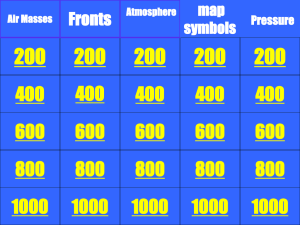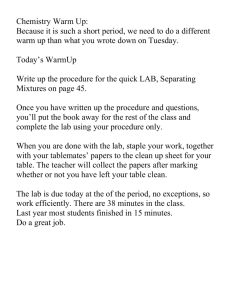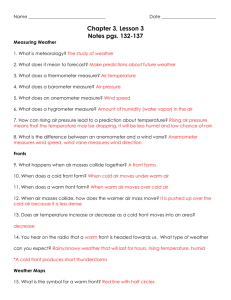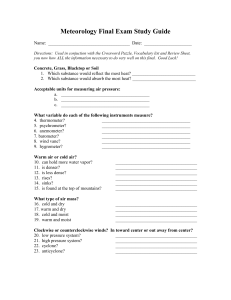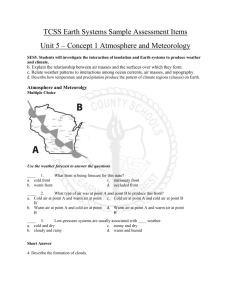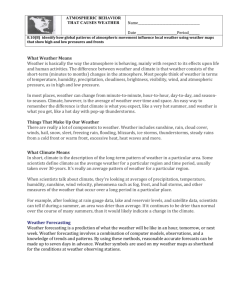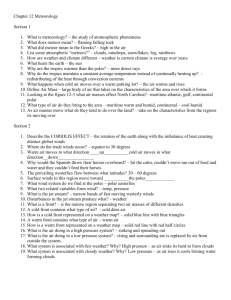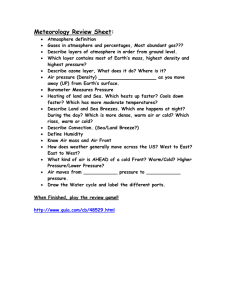Reading a Weather Map - WLAScienceLab5
advertisement
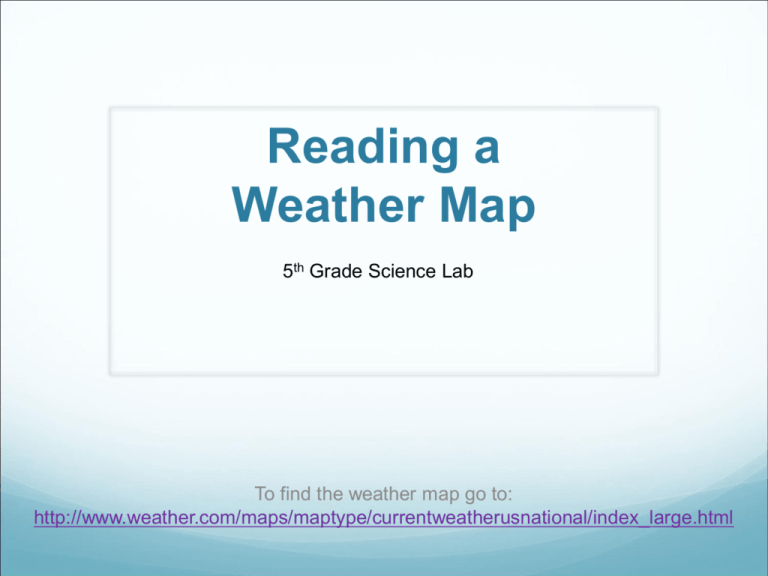
Reading a Weather Map 5th Grade Science Lab To find the weather map go to: http://www.weather.com/maps/maptype/currentweatherusnational/index_large.html Cold Front Symbol Information Cold, dry air replaces warm air. Following a cold front, temperatures drop dramatically. Precipitation can occur along the front line. Including thunderstorms. Warm Front Symbol Information Warm moist air replaces cool dry air. Following a warm front, temperatures increase. Light precipitation can occur along the front line. Stationary Front Symbol Information A stationary front occurs when a warm or cold front stops moving. Noticeable temperature and wind shifts occur when traveling across the front line. Once the stationary front starts moving again, it becomes warm or cold. High Pressure Symbol Information Winds flow clockwise around a high pressure system. High pressure is usually associated with little cloud coverage. Low Pressure Symbol Information Winds flow counterclockwise around a low pressure system. Low pressure is usually associated with cloud coverage and areas of different weather depending on placement of the fronts near the low pressure. (See information on the left.) The Weather Map Use a copy of the weather page from the local newspaper. Complete the “Reading a Weather Map” worksheet. Draw the symbols on the US Outline Map for only… Low Pressure High Pressure Cold Front Warm Front Use colored pencils! Sources http://ww2010.atmos.uiuc.edu/(Gh)/guides/maps/home.rxml http://www.nauticus.org/images/usoutlinemap.jpg http://www.wunderground.com/maps/ The Charlotte Observer Weather Page Occluded Front Symbol Information Occurs when a cold front catches up to a warm front. A cold front travels faster than a warm front. Changes in temperature, humidity, and winds occur with passage of an occluded front. (See diagram to the left.)
